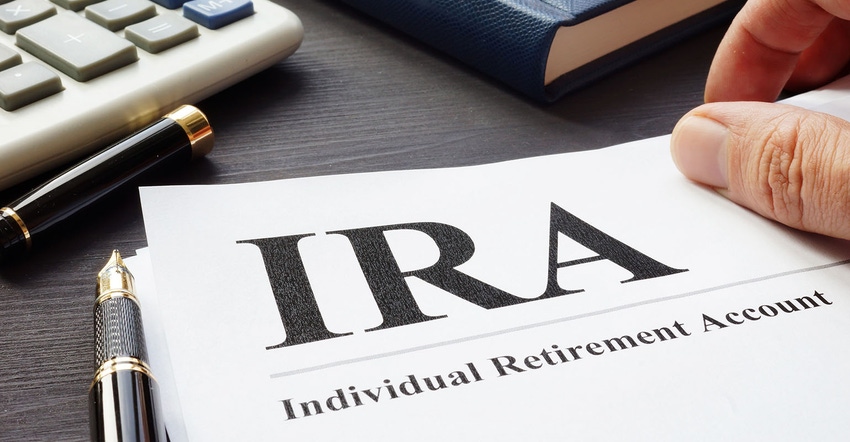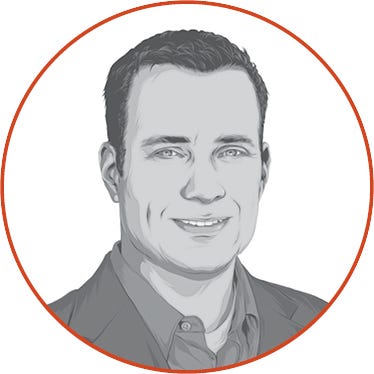
Most people I work with own farmland, and many of them also own some type of retirement IRA. In transition planning, there is also a financial component to review what the income sources are during retirement.
There is no doubt retirement funds invested in the stock market have performed very well over the last decade. However, as retirement nears the mindset about the stock market often changes and causes some to question whether there are other investment alternatives available for their funds.
‘I wish I could buy a farm with my IRA’
This is a common expression I hear. Farmers and landowners are comfortable with farmland and how it works. Farmland is also a long-term, stable investment which has historically appreciated in value.
Many don’t realize you can actually buy a farm with your IRA.
The IRS has allowed for the investment in farmland by your IRA since they were first introduced in 1974. So, why isn’t this better understood? One of the reasons is most of the typical IRA providers do not offer the option to invest in alternative investments such as farmland, only traditional investments such as stocks, bonds, and mutual funds. In fact, you must be a qualified custodian, administrator, or facilitator to offer these alternative investment classes which are now becoming more popular. This is an opportunity to self-direct and diversify all or a portion of your retirement funds away from Wall Street and into more private investment sources.
Self-directed IRA
The first step is to open an account and roll all or a portion of your existing IRA to a self-directed IRA. Then, you advise your custodian or administrator which tract of farmland you wish to purchase. There are definitely some do’s and don’ts however:
Prohibited transactions. First, you cannot gain personal benefit or operate the farmland yourself. In other words, no self-dealing and the transactions must be arms-length in nature. You can buy, sell, and lease the farmland to anyone except for disqualified persons; they include you and your spouse, and any direct lineal descendants up and down your family tree (parents, children, grandchildren). However, buying, selling, or leasing to a sibling, cousin, extended family member, or neighbor, is acceptable. All revenues and expenses must flow to and from your self-directed IRA account and you cannot touch the monies personally. The investment must benefit your IRA, not you personally.
Tax advantages. Just like other IRAs, a self-directed IRA shelters income tax as the income from the investment grows tax-deferred (Traditional IRA) or tax free (Roth IRA). The sale of a farm is also not subject to capital gains tax treatment. So, you can buy, sell, or trade farmland inside your self-directed IRA under no time restraints or concern over capital gains.
A self-directed Roth IRA (tax free growth), in addition to being exempt from capital gain tax on the sale of the investment, is a powerful combination from a tax standpoint.
Example: I buy 80 acres with my self-directed Roth IRA. The transaction is arms-length and all monies flow to and from my IRA account. Since I already paid the income tax when I contributed the funds to the Roth account, all income, appreciation, and capital gains grow tax free inside the account. With a Traditional IRA, I would be required to take minimum distributions (RMD’s) and pay the respective income tax beginning at the age of 72. However, RMD’s are not required with a Roth IRA; but if I elect to take distributions, they are tax free.
Is it too good to be true
Yes, it is legal to own farmland and other alternative investments with your IRA. There are also tax and legal advisors who may scrutinize it, just as your current financial advisor no doubt will. As with any investment, be sure to work with qualified individuals who specialize in this area and are familiar with the laws in your individual state. Otherwise, please know there are other investment alternatives available for your IRA if the future unknown of the stock market concerns you.
Downey has been helping farmers and landowners for the last 21 years with their family farm transition, leasing strategies, finances, and general land consultation. He is the co-owner of Next Gen Ag Advocates and an associate of Farm Financial Strategies. Reach Mike at [email protected].
The opinions of the author are not necessarily those of Farm Futures or Farm Progress.
More from Mike Downey
How to transfer assets to your farming heir
What is the best way to transfer farmland to the next generation?
What’s the best way to transfer farm equipment to next generation?
Read more about:
TaxesAbout the Author(s)
You May Also Like






